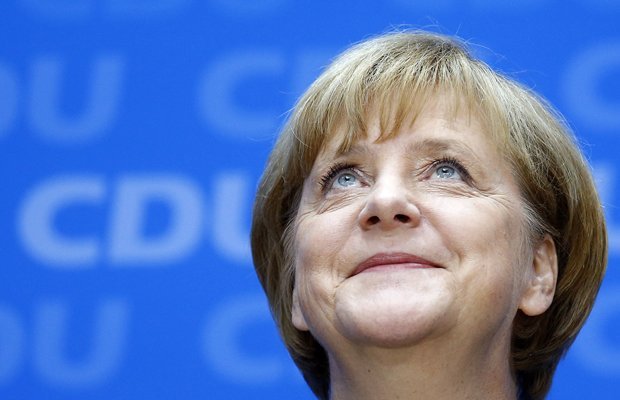The German election and potential market reactions

With Angela Merkel in the midst of forming a coalition, it looks like most Germans will get a preferable result, as opinion polls show most are in favour of a grand coalition.
Whilst Merkel's CDU/CSU 41.5 per cent win will likely see her remain chancellor and vindicates her policy stances so far, the victory is not a majority, and is complicated by the fact that the CDU’s strength comes from voters who have abandoned her current coalition partner, the Free Democrats (FPD), who came in just shy of the five per cent parliament threshold with 4.8 per cent.
Merkel’s coalition deliberation means agreement with left-leaning tendencies and greater EU sympathies: the Social Democrats (SPD) or the Greens.
John J. Hardy, head of FX Strategy at Saxo Bank says:
One of these coalitions will be more “EU friendly” …But even a “grand coalition” with the SPD if likely to be anything but grand and the greater risk from here is that Germany’s leadership in Europe risks being as weak as Merkel’s victory in the elections was strong. That’s at least in part because every EU-related decision in Germany will be a nervous exercise in calculating the effects of domestic politics within an uncomfortable coalition.
A grand coalition with the Social Democrats (SPD) will mean a domestic agenda that's slightly more centre-left: the SPD won't object to Merkel's euro policies but may push on modest tax hikes for top marginal incomes. Those hoping for a shift in policy will likely be disappointed with Merkel probably giving a little here and there – perhaps initiating a third bailout in Greece to prevent wider hemorrhaging – and taking smaller steps when it comes to fiscal union.
Hardy continues :
The EU is a house without a foundation, and such a house can’t stand forever. And a new Merkel-led coalition will not put Germany on a path toward building that foundation, it will merely see Germany continuing to send out the repairmen to plaster over the cracks that are appearing in the walls as the house continues to destabilize.
Europe already risked rising tensions with this new German government, a rising Euro will quickly accelerate those tensions within the EU and without and bring us quickly to the next chapter of the history of this awkward union.
Commenting on market reaction to Angela Merkel’s victory and necessity to form a coalition, Jonathan Pryor, Investec Corporate Treasury, said:
The significance for the euro of Merkel being re-elected is that currency markets are generally quite precious when it comes to political change so a third term for Merkel is likely to be euro positive. The fact that her party will also be forced to enter into a coalition should be received well by markets considering that it’s likely, left to their own devices, the Conservative Party would yield a firm austerity first view to the peripheral member states.
Policy differences, along with personal animosities, make a CDU-Green coalition look unlikely. Aside from the need to press on when it comes to EU matters, further differences between the parties will make for interesting dialogue:
Finance
Whilst the CDU is against a European deposit insurance, the SPD supports a European ratings agency. They also want to see the separation of investment banking, minimum holding periods, and a bank levy. This is in addition to the banking union the parties agree on, although the CDU would see small banks exempt.
Private bank Berenberg comments, however, that 'as far as the periphery is concerned, the SPD’s policies are much less radical than they might
appear':
Like the CDU, the SPD is opposed to permanent fiscal transfers in the form of eurobonds and also to any debt write-downs. It is also strongly against moves towards banking union such as taxpayer-funded bank recapitalisation and region-wide deposit guarantees.
Labour market
Whilst the CDU operate a flexible approach to labour quotas and pay, the SPD would like to see a €8.50 minimum wage and a 40 per cent female quota.
Social welfare
The CDU propose various modest pension increases, whilst its two potential partners support public health insurance for all and a minimum income review.
Energy
Although the CDU would limit fracking, the SPD would see a moratorium on it. The Greens call for the end of use of coal and oil by 2030.